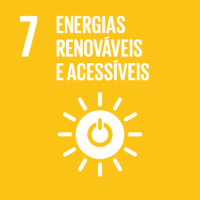Ciência_Iscte
Publicações
Descrição Detalhada da Publicação
Which energy citizenship in positive energy districts? A governmentality social psychological analysis of participatory governance
Título Revista
Journal of Environmental Policy and Planning
Ano (publicação definitiva)
2024
Língua
Inglês
País
Reino Unido
Mais Informação
Web of Science®
Scopus
Google Scholar
Esta publicação não está indexada no Overton
Abstract/Resumo
Towards low carbon energy transitions, the EU is developing Positive Energy Districts (PEDs) which produce more renewable energy than they consume. This implies more participatory governance which decentralises and democratises energy decisions to citizens, as captured in the emergent concept of ‘energy citizenship’. However, it has been argued that these governmental strategies and the energy citizens they create have been co-opted by a neoliberal governmentality. This may limit citizens’ rights and responsibilities as only consumers/prosumers in the private sphere. However, the neoliberal form of energy citizenship as well as potential alternative forms have seldom been empirically examined, so the main aim of this paper is to analyse which representations of energy citizenship are fostered in PED policies at EU, national, and local levels in a case study of Torres Vedras, Portugal. The analysis, which combines a governmentality approach with the critical social psychology of citizenship, unveils neoliberal energy citizenship as the hegemonic representation in these policies, and identifies emancipated representations of energy citizenship based on entrepreneurial energy activism and energy localism.
Agradecimentos/Acknowledgements
--
Palavras-chave
Positive energy districts; Energy citizenship; Social representation,Neoliberal governmentality,Participatory governance
Classificação Fields of Science and Technology
- Psicologia - Ciências Sociais
- Outras Ciências Sociais - Ciências Sociais
Registos de financiamentos
| Referência de financiamento | Entidade Financiadora |
|---|---|
| DL57/2016/CP1359/CT0039 | Fundação para a Ciência e a Tecnologia |
| 812730 | Marie Curie Actions Horizon 2020 |
Projetos Relacionados
Esta publicação é um output do(s) seguinte(s) projeto(s):
Contribuições para os Objetivos do Desenvolvimento Sustentável das Nações Unidas
Com o objetivo de aumentar a investigação direcionada para o cumprimento dos Objetivos do Desenvolvimento Sustentável para 2030 das Nações Unidas, é disponibilizada no Ciência_Iscte a possibilidade de associação, quando aplicável, dos artigos científicos aos Objetivos do Desenvolvimento Sustentável. Estes são os Objetivos do Desenvolvimento Sustentável identificados pelo(s) autor(es) para esta publicação. Para uma informação detalhada dos Objetivos do Desenvolvimento Sustentável, clique aqui.

 English
English




